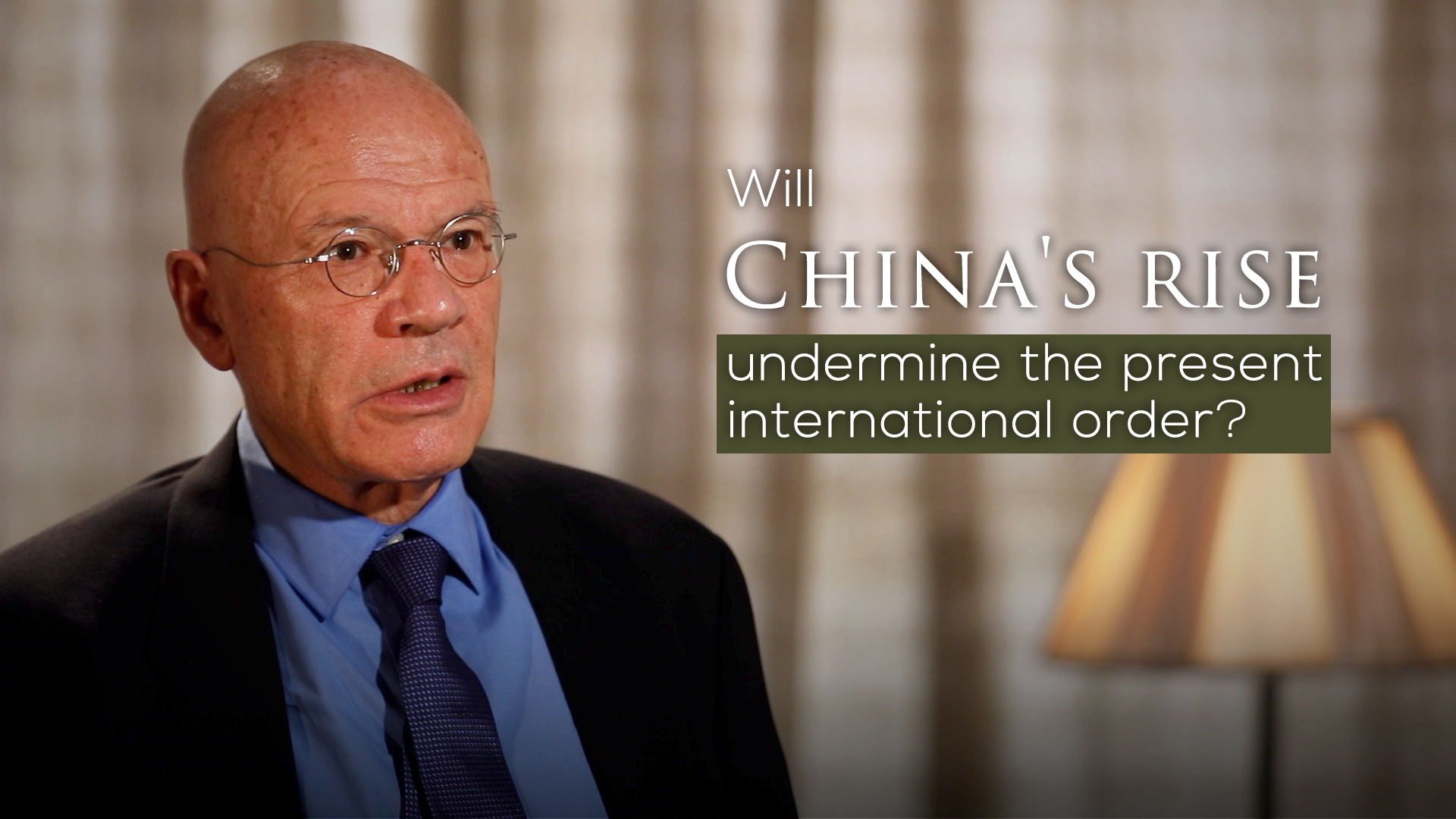

Editor’s note: With its growing global influence, some suspect China aspires to change the current international order. Martin Jacques, author of the global bestseller "When China Rules the World," shares his views on the issue and the impact of the trade war on China's future growth. The opinions expressed in the video are his, and do not necessarily represent those of CGTN.
CGTN: What kind of global power will China be?
Jacques: We can already see that China is going to be very different from the Western paradigm, as illustrated by the UK once and America today. China's history is not one of a missionary expansion, (not) trying by war, taking its idea and its models and its beliefs across the world, as the Europeans did, and the United States has done. I don't think you could ever say that China has majored on military power, for example, on war. And that's the opposite to the American and the British philosophy.
People don't give nearly enough credit to China for the fact that since its rise began, it has been an extraordinarily peaceful rise. It has not been involved in any serious wars. There have been a few border clashes, but they were strictly border clashes. You compare that with the history of the United States or Japan or Britain or France or Germany. All of them had many wars of expansion. So I think China is going to be very different in that context.
CGTN: Will China's rise implicate changes in the global order?
Jacques: China is not a country that believes in sharp change, in destroying (the current global order) and so on. It’s much more interested in a process of change, a process of mutation. So when the Chinese say we support the existing international system, they mean it. They don't mean that they're actually going to replace it with something different. They might, of course, they argue and rightly, in my view, that the existing system needs reforming because it's inadequate in all sorts of respects. But they have great respect for a system which allowed them to transform over a period of 35-40 years.
In the longer run, the rise of China is obviously, irrespective of what China thinks or does, it's going to change a lot because China is so big. It’s going to be easily the biggest economy in the world by 2030 or probably something like twice the size of the American economy. It will be larger than the American economy and European economy put together.
Obviously that is going to necessitate big changes in the international system, but I don't think that China particularly has a revolutionary view of what should happen. I don't think it thinks in those terms.
There is one really important thing though to say and that is the change that we're talking about, is not just about China. The biggest single change since 1945 is the transformation and the rise of the developing world, of which China is part, and which constitutes about 85 percent of the world's population.
And in my view, that majority of the world's population will constitute the new international order, because one of the weaknesses is the present international order is based fundamentally, historically on the rich world, which is only about 15 percent of the world's population.
CGTN: Will the trade war with the U.S. hinder China's rise?
Jacques: I definitely don't think that the trade war is going to stop China's rise. Take Huawei as an example. Huawei is a remarkable company. It has come a long way and it has invented its own path of development – starting in the Chinese countryside, then moving into the Chinese cities, then going increasingly into developing countries and eventually arriving in developed countries, except for America, which decided it couldn't bear the competition and excluding it on the security grounds.
But Huawei is just also an illustration of the acumen and the dynamism of China. I am much more worried for the United States in the longer run because China is a rising power; America is a declining power.
This has not been nearly widely recognized enough, including in China, the extent to which America declines. I don't mean America hasn't still got great power. It has, as we've seen with the trade war and so on, but it is a declining power. If America decides to shut itself off from the Chinese market and so on, it's cutting its nose to spite its face. Because the Chinese market is not only on the verge of becoming the largest in the world, it is the most dynamic. So America's competitiveness will suffer if it cuts itself off from China.
Interviewer: Xu Sicong
Videographer: Gao Chong
Video editors: Xu Sicong, Wu Chutian
Producer: Wei Wei
Chief editor: Qin Xiaohu
Supervisor: Mei Yan
(If you want to contribute and have specific expertise, please contact us at opinions@cgtn.com.)

Copyright © 2018 CGTN. Beijing ICP prepared NO.16065310-3
Copyright © 2018 CGTN. Beijing ICP prepared NO.16065310-3